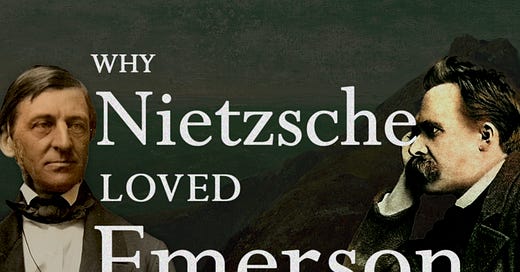“Twin Souls” — Nietzsche’s Constant Love of Ralph Waldo Emerson
Zarathustra and the Sage of Concord
The profound influence of American philosopher Ralph Waldo Emerson on Nietzsche is one of the most underestimated connections in the history of philosophy; as American philosopher Stanley Cavell has put it:
“no matter how often this connection of Nietzsche to Emerson is stated, no matter how obvious to anyone who cares to verify it, it stays incredible, …
Keep reading with a 7-day free trial
Subscribe to The Living Philosophy to keep reading this post and get 7 days of free access to the full post archives.




